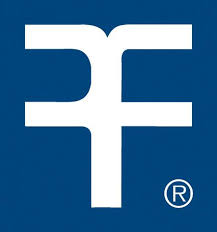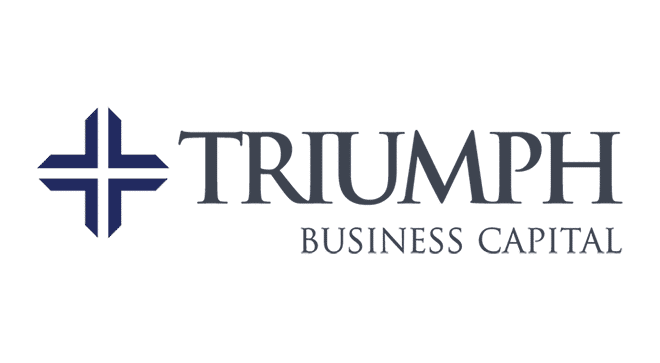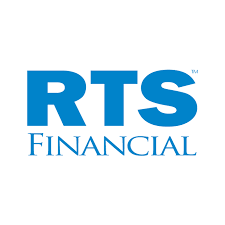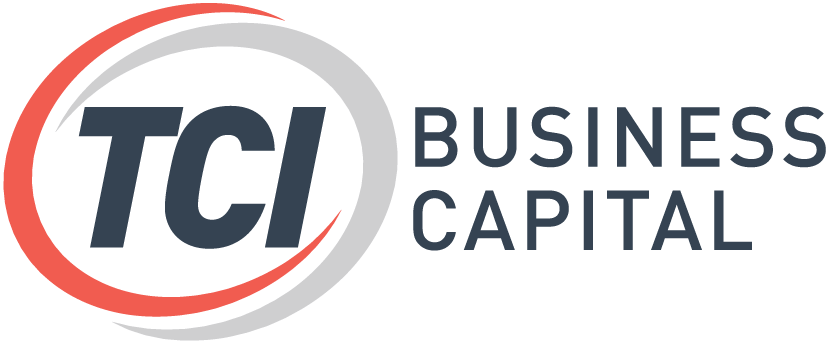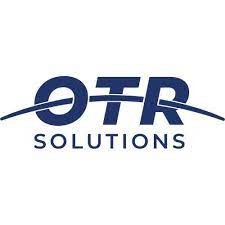What is Invoice Factoring?
Invoice factoring is a business financing method where a company sells its accounts receivable invoices to a third-party factoring company or factor. The factor purchases your invoices at a discounted rate, and you receive cash upfront. The factor then owns the invoice and collects it from your customer.
Invoice Factoring Example
Let’s say your business has a factoring agreement at the discount rate of 2%. You want to sell or factor an invoice worth $10,000. After applying the discount rate of 2%, the factor purchases the invoice for $9,800.
However, you won’t receive the total of $9,800 at once. Most factoring agreements stipulate the factor will issue funds at the advance rate upfront. Advance rates range from 75%-100%, but for our example, we’ll say the advance rate is 90%.
So, the actual amount you receive upfront is 90% of $9,800, which works out to $8,820. The remaining $980 becomes the reserve amount. Once the customer pays their invoice, the factor releases the reserve amount to you.
Discount rates can change if your customers take longer than expected to pay. Let’s say the 2% rate is if your customer pays within 30 days. If the customer takes longer than 30 days to pay, the rate will increase each month the invoice remains unpaid.
What is a Factoring Company?
A factoring company is a financing institution that purchases invoices at a discounted rate in exchange for providing upfront cash. The factoring company then becomes responsible for collecting the invoice amount.
In some ways, the factoring company acts as a business’s back-office accounts receivable. Let’s look at some of the key differences between different invoice factoring companies.
Fees
The first thing to consider is the cost. Invoice factoring will always be an expensive way to secure financing, but some companies are far more expensive than others. You want to make sure that you can afford the fees and that the cost of financing is worth it for your business.
Recourse vs. Non-Recourse
Recourse factoring means your company is liable if your customers default on their invoices. In non-recourse factoring, you don’t have to pay if your customers default due to specified reasons, such as bankruptcy. Non-recourse factoring is more expensive, but the added protection might make it worth it.
Notification Factoring
Some factoring companies will notify your customers when they purchase the invoices, and others will not. If you don’t want your customers alerted when you sell their invoices, look for a company that doesn’t notify them.
Additional Services
In addition to factoring services, some invoice factoring companies stand out because they offer enhanced services to help you process invoices. Some additional services to consider when looking for a factoring company include:
- Easy invoice uploads.
- Integration with your accounting software.
- Credit checks on your customers.
- A/R processing tools.
- Online portals or mobile apps for convenient processing.
What are the best Invoice Factoring Companies?
We’ve compiled a list of the best invoice factoring companies to consider for your business.
altLINE
- Advance Rate: 85%-95%
- Discount rate: 0.5% – 5%
- Funding time: 1-3 business days, but varies
altLINE is the invoice factoring wing of The Southern Bank Company, based out of Alabama. Since the community bank funds altLINE’s invoice factoring, it can keep rates competitive.
The factoring company’s advance rates range from 85%-90%, and their discount rates start as to allow as 0.5%. The discount rate caps out at 5% if customers take longer than 30 days to pay their invoices.
altLINE does not offer invoice factoring to trucking or freight companies, which is uncommon in invoice factoring. It does offer excellent rates for all other industries, though.
Applying to altLINE:
You can complete the questionnaire on altLINE’s website to get a quote. A specialist from the company will call you back to discuss your options.
altLINE does not have a minimum credit score or time in business. It does require a minimum monthly revenue of $15,000.
Riviera Finance
- Advance Rate: up to 95%
- Discount rate: start at 2%
- Funding time: 24 hours
Riviera Finance offers non-recourse factoring, and it is one of the longest-running factoring companies available. The company’s unique credit guarantee sets them apart from other factoring companies.
The company’s credit management service guarantees credit on all invoices, so Riviera Finance assumes the risk as the credit manager. Companies factoring invoices through Riviera get peace of mind knowing they are not responsible if a customer doesn’t pay their invoice.
Riviera Finance offers a convenient online portal with 24/7 access to your invoice information. The company uses integrated tools to provide support as an accounts receivables partner.
It’s also a good option for businesses that need funds quickly. Once approved, the company provides funding for invoices within 24 hours. Advance rates go up to 95%.
Applying to Riviera Finance:
You can apply in person at one of the company’s 25 locations, complete an online application, or call them directly.
Riviera does not have minimum requirements for credit score, time in business, or revenue. Credit decisions are based on your customer’s creditworthiness.
eCapital
- Advance Rate: up to 100%
- Discount rate: Starts at 1%
- Funding time: Same day to 48 hours
eCapital Commercial Finance provides several business financing products, including invoice factoring. The company is great for startups and younger businesses as it doesn’t have minimum requirements that would typically exclude those businesses.
The factoring company offers advance rates of up to 100%, one of the best in the industry. Discount rates range from 1% to 5%, and they currently offer a 90-day trial period.
eCapital offers both recourse and non-recourse invoice factoring. The company provides some of the quickest funding times in the industry, with same-day funding possible in some cases.
Invoice factoring customers gain access to eCapital’s database of over 40,000 companies and can run unlimited credit checks. The tool allows small business owners to run credit checks on their customers before factoring their invoices.
Applying to eCapital:
Complete an online questionnaire and then speak to a company representative. It’s possible to get approved and funded the same day you apply.
eCapital does not have minimum requirements. Any business with a verifiable invoice can apply.
Triumph Business Capital
- Advance Rate: Up to 100%
- Discount rate: 1%-4%
- Funding time: 24-48 hours.
Triumph Business Capital specializes in invoice factoring for trucking and freight companies. The trucking industry utilizes invoice factoring more than any other industry.
Triumph offers additional incentives like a fuel card program, insurance, and equipment financing. The company also offers invoice factoring to staffing companies, oil and gas, manufacturing, telecommunications, and service businesses.
Triumph’s discount rates range from 1% to 4%, and it offers a 100% advance rate with no reserves. It offers both recourse and non-recourse financing.
Applying to Triumph:
In some cases, it’s possible to receive same-day funding. Complete the online application or call Triumph to apply.
RTS Financial
- Advance Rate: up to 97% of invoice value paid upfront.
- Discount rate: Undisclosed
- Funding time:
RTS Financial provides invoice factoring for various industries but offers special incentives for freight businesses. In addition to helping solve cash flow issues, RTS provides a desktop and mobile app to help trucking businesses manage day-to-day operations.
The company offers a fuel card program for trucking a freight business. It can provide up to 97% of the invoice’s value and provides quick funding with same-day funds in some cases.
The main drawback of RTS is that it doesn’t provide rates upfront. You need to apply to discover the fees and charges that would apply.
RTS does not charge ACH transfer fees or invoice processing fees.
Applying to RTS Financial:
Like most factoring companies, the process starts with completing an online application and speaking to a representative. After providing basic information about your business and needs, you will speak with someone at the company again to finalize your application.
There are no minimum requirements for credit score, time in business, or revenue.
TCI Business Capital
- Advance Rate: 70%, 80%, or 90%
- Discount rate: N/A – varies based on when customers pay
- Funding time: 24 hours
TCI Business Capital provides invoice factoring on monthly contracts. You can lower your rate by increasing the volume of invoices you process.
The company mainly provides financing to business-to-business (B2B) companies in the following sectors:
- Environmental services.
- Government contractors.
- Heavy construction.
- Oilfield services.
- Manufacturing.
- Renewable energy
- Staffing.
- Telecommunications.
- Trucking and freight.
- Utility and pipeline contractors.
TCI offers a fuel card program for trucking businesses. It also provides some personal touches, including speaking with a representative to find the best package for your needs.
The company’s fees are volume-based, like many invoice factoring companies. The website doesn’t disclose the exact fee ranges. You must apply to get a quote:
Applying to TCI Business Capital:
Complete the online questionnaire to get a quote. A representative will contact you to discuss your financing needs and the best product for you.
There are no minimum requirements for your credit score or time in business, but the revenue requirement is higher than most. Your business needs $50,000 in monthly revenue to qualify.
OTR Solutions
- Advance Rate: 96%
- Discount rate: 1% – 4%
- Funding time: 24 hours, with instant funding possible.
OTR Solutions (formerly OTR Capital) is one of the leading invoice factoring companies for the transportation industry. Some rank as the best invoice factoring company among freight factoring companies. The company offers additional services such as equipment financing, insurance, fuel cards, and tax assistance.
Complementing their invoice factoring service, OTR offers a convenient online portal to check your customers’ credit. Simply enter the MC number to find the results you need.
Going along with the online portal, OTR also offers a mobile app. Customers can use the app for uploads, processing data, and adding notes.
OTR does not have monthly minimums, credit restrictions, or volume limits. It offers both recourse and non-recourse factoring.
The company offers a consistent flat factoring rate and doesn’t have hidden charges or fees. OTR offers customized factoring programs to meet a business’s unique needs.
Applying to OTR Capital:
You can complete the online form to have a representative contact you or apply directly with your MC or USDOT number.
Bluevine
- Advance Rate: 85%-90%
- Discount rate: Starting at 0.25% per week.
- Funding time: 24 hours
Bluevine offers invoice factoring to small and medium size businesses. It only works with B2B companies, as traditional consumer invoices are not accepted.
When you register with Bluevine, you can decide which invoices to factor. There are no mandatory requirements on how many or what percentage of your invoices to factor with the company.
Once you apply and get approval, you can sync your accounting software to Bluevine and begin uploading invoices. You can also upload them manually if you prefer.
Once you submit an invoice, you’ll receive the funds at the advance rate in 24 hours. You get the rest of the money when your customer pays their invoice, minus any fees.
Applying to Bluevine:
The application process takes less than 10 minutes. You can apply online at the company’s website or through United Capital Source.
The minimum qualifications for Bluevine invoice factoring are:
- A personal credit score of 530+.
- $10,000 in monthly revenue.
- 3+ months in business.
How to apply for Invoice Factoring:
You can apply for invoice factoring through United Capital Source. Follow these instructions to apply for invoice factoring.
Step 1: Make sure your customer is reliable.
Factoring invoices only works when your customers pay their invoices on time and in full. Ensure you’re certain your customers will pay before contacting a factoring company.
Step 2: Gather your documentation.
When you apply, the factoring company needs to review the following documents:
- Driver’s license.
- Voided business check.
- Banks statements from the previous three months.
- Business tax return.
- Accounts receivable aging report, Accounts payable report, debt schedule.
Step 3: Apply.
You can complete our one-page application or give us a call to apply. Either way, you’ll need to provide the information above and the invoice amount you want to sell.
Step 4: Speak to a representative.
Once you apply, one of our representatives will reach out to discuss the factoring fee, factoring rate, and terms attached to the sale. You’ll get an upfront breakdown of all costs, so you don’t have to worry about hidden fees.
Step 5: Receive approval.
The entire process takes about two weeks to finalize. Funds will appear in your bank account 1-2 days after completing the application.
Frequently Asked Questions
Here are some of the most common questions and invoice factoring.
What’s the difference between Invoice Factoring & Invoice Financing?
While the two terms sound similar, there are significant differences between them. As discussed, invoice factoring is when you sell your unpaid invoices for immediate cash.
Invoice financing, also known as accounts receivable financing, is when you receive an upfront amount based on the value of your invoices. You then repay the loan as your customers pay their invoices.
In invoice factoring, the factoring company owns the invoices and is responsible for collecting them from your customers. With invoice financing, you still own the invoices and you collect from your customers.
Invoice factoring uses a factoring fee, also known as a discount rate, whereas invoice financing likely uses a traditional interest rate—the cost of both forms of business financing tend to run high.
Is Invoice Factoring right for my business?
Invoice factoring is best for businesses in urgent need of funding that might not qualify for traditional business lending. More established businesses with good credit can likely find cheaper ways to finance the company.
Since invoice factoring is considered near-term financing, it’s best for customers that need to meet an immediate cash flow shortage. Likewise, it’s best for companies whose customers pay on time.
Factoring fees are often based on how long customers take to pay and whether or not they pay one time. You can expect higher fees if your business routinely waits longer than 90 days for payment. However, you typically get a lower rate if most customers pay within 30 days.
Small business owners might consider invoice factoring if their company has a lot of unpaid invoices and is facing cash flow shortages. For example, if your business has thousands of dollars in accounts receivable, but payroll is due soon, receivables factoring might be a good option.
Accounts receivable factoring is also a potential option for newer businesses. Since the factoring company ultimately receives its money from your customers, not you, your business doesn’t need to meet rigorous credit approval requirements. Your customers’ credit, however, does come into play.
You should consider invoice factoring if the following apply to your business:
- Has verified invoices in accounts receivable.
- Needs immediate access to working capital.
- Can’t get approved for a traditional loan or doesn’t want to incur debt.
- Your customers reliably pay their invoices on time.
- The cost of the discount rate is worth it for the immediate capital.
What is Recourse vs. Non-Recourse Factoring?
In recourse factoring, you are responsible if your customers don’t pay their invoices. In non-recourse factoring, the factoring company takes the financial loss if a customer doesn’t pay.
Non-recourse factoring rates are higher than recourse factoring, but the added liability protection might be worth the extra cost. Some companies only offer non-recourse factoring in limited situations, such as a customer not paying because they went bankrupt.
What are the advantages of Invoice Factoring?
There are several advantages to factoring receivables. It’s one of the most accessible forms of business financing to qualify for – since credit decisions are based on your customers’ credit more than yours.
Receivables factoring isn’t a loan, so you don’t incur any debt. It’s a viable alternative for companies in urgent need of funding that don’t want to add to their debt.
When you factor invoices, the factoring company becomes responsible for collecting payment from your customers, saving you time and resources. And don’t worry – factoring companies won’t relentlessly pursue your customers, either. When you work with a company like UCS, your customers won’t even know you sold the invoice.
The most significant benefit is turning accounts receivable into working capital. Unpaid invoices are like unsold inventory – the longer it goes without converting into cash for your business, the less profitable it becomes.
What are the disadvantages of Invoice Factoring?
The biggest drawback is that account receivables factoring is expensive. Like most near-term and short-term financing, invoice factoring carries higher rates and fees than traditional long-term business financing.
Due to the complex nature of receivables factoring, it’s also difficult to compare costs to a loan or other forms of financing. Accounting for factored receivables, using the techniques described above, helps understand the total costs involved.
While you don’t need good credit for approval, your customers do. If your customers are unreliable and already paying late, you are unlikely to get approved. Receivables factoring works best for established businesses with many partners.
Factoring accounts receivable is not the only way to avoid late payments and convert invoices into cash. Sometimes all you need to do is improve billing. You can try automating your invoices, giving customers more ways to pay, and improving your collections team’s efforts.
We prepared a pros and cons list for a quick summary.
Pros & Cons:
Pros:
- Turn unpaid invoices into cash.
- Easier to qualify for than other business financing options.
- You can use the funds for a variety of business purposes.
- Invoices and receivables are treated as collateral.
Cons:
- Higher rates & fees than traditional loans.
- Fees are based on how long customers take to pay their invoices.
Best Factoring Companies – Final Thoughts
Each factoring company we listed today has its advantages and drawbacks. Finding the right company depends on your specific needs.
Most transportation companies can find companies that offer industry-specific benefits, like a fuel discount card. Several provide integrated services such as insurance, equipment financing, and convenient tools to manage your business on the go.
Business-to-consumer (B2C) companies are more limited in their options as most invoice factoring companies prefer to work with B2B. However, some companies could work for B2C if you have a verifiable invoicing system.
The three most important things when deciding on a factoring company are how much you will get (advance rate) when you get it (funding time) and how much it will cost you (discount rate). After that, you can also look at what additional services the company offers to find the best one for your needs.
If you’re interested in accounts receivable factoring through United Capital Source, you can contact us or visit our invoice factoring resource page.





